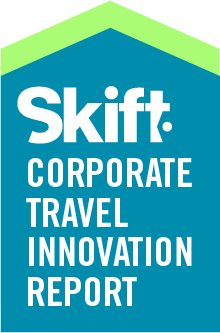Last-Minute Hotel Cancellations Get Pricey — Corporate Travel Innovation Report

Skift Take
 The Skift Corporate Travel Innovation Report is our weekly newsletter focused on the future of corporate travel, the big fault lines of disruption for travel managers and buyers, the innovations emerging from the sector, and the changing business traveler habits that are upending how corporate travel is packaged, bought, and sold.
The Skift Corporate Travel Innovation Report is our weekly newsletter focused on the future of corporate travel, the big fault lines of disruption for travel managers and buyers, the innovations emerging from the sector, and the changing business traveler habits that are upending how corporate travel is packaged, bought, and sold.
Major hotel companies are cracking down on cancellations, and ignoring the new policies could be costly. Marriott announced last month it was implementing a 48-hour cancellation policy in the Americas, while Hilton is rolling out a similar policy in the U.S. and Canada this month. InterContinental Hotels Group was the latest to announce a change, though the UK-based company is moving most hotels to a 24-hour cancellation window.
Business travelers, of course, don't always have the leisure of knowing far in advance if they will have to cancel a reservation. So flexible cancellation policies could become a more important part of corporate rate negotiations moving forward.
And even though the rules may not seem terribly onerous now, observers think hotels will get even more strict with their cancellation policies in the years to come. And as industry giants such as Marriott, Hilton, and IHG implement changes, competitors are likely to follow.
Here's another warning about last-minute behavior, this time for flyers: Be sure to show up early for your next flights. Airport security checkpoint lines could get a little longer with new screening procedures for electronics bigger than a smartphone. Passengers on international flights headed to the U.S. and, soon, domestic flights within the country will need to plan for the possibility of longer waits than usual.
— Hannah Sampson, News Editor
Business of Buying
Business Travel Spending Is Expected to Gain Steam Globally by 2018: While growth prospects for business travel spending look strong for next year into 2020, there is still enough uncertainty that experts are adding lots of caveats to their forecast. Read more at Skift
Marriott and Hilton’s New Cancellation Policies Won’t Impact Corporate Travel as Much as You Think: Forty-eight hours isn’t too bad, but things might be tougher for everyone, corporate and leisure travelers alike, if the policy stretches to 72 hours in the future. Read more at Skift
InterContinental Hotels Group Institutes a 24-Hour Cancellation Policy: Twenty-four hours is more lenient than 48 hours. We’d be surprised if IHG doesn’t eventually make the move to 48-hours’ notice like its peers Hilton and Marriott very soon. Read more at Skift
Tips From a Road Warrior: Never Eat on Planes and Always Carry Pepto-Bismol: You will almost certainly feel better when you arrive if you don’t eat the airline food. But what fun is that? Eating two or three meals on a long-haul flight is part of the experience, right? Read more at Skift
Safety + Security
U.S. Steps Up Electronics Screenings on Inbound International Flights: More intense screening procedures on big electronic devices will lead to longer lines in security for travelers to the U.S. And if you’re singled out and have forgotten to charge a device, you may have to dispose of it in order to get through security. Read more at Skift
Flyers in the U.S. Will Soon Have to Separate Large Electronics at Security Checkpoints: This security change will slow down airport security lines and lead to some confusion at TSA security checkpoints. It represents a middle ground after attempts to ban large electronics completely from aircraft cabins, representing something of a win for U.S. passengers. Read more at Skift
European Court Says EU-Canada Passenger Data Deal Violates Privacy: Many countries haven’t figured out how to safely and securely share passenger data while maintaining privacy. That’s a problem as more airports begin to pilot various biometrics programs, for example, that are meant to harvest this data. Read more at Skift
Disruption + Innovation
Lux Bus Startup Hopes Design and Flat Beds Will Make Overnight Trips Appealing: Cabin seeks to bring style and a “moving hotel” approach to the overnight bus journey. The company has nailed the design and approach, but will Californians choose it over flying? Read more at Skift
What the Travel Industry Could Learn From Amazon Prime: Amazon’s subscription model — which has already disrupted music, groceries, and retail — could be the key to travel brands unlocking more revenue per customer. Here’s the lowdown on the latest tests. Read more at Skift
Air France-KLM Thinks the World Needs an Airline for Millennials: It’s official: We’ve hit peak millennial. Read more at Skift
The Airports of the Future Are Taking Shape: U.S. airports have a lot of infrastructure problems, and many need to be renovated. But we’re not sure American airports need indoor rainforests or virtual reality golf. That stuff is cute, but we think what travelers really want is on-time, reliable flights from clean, comfortable airports. Read more at Skift
COMMENTS
Skift editors Hannah Sampson [hs@skift.com] and Andrew Sheivachman [as@skift.com] curate the Skift Corporate Travel Innovation Report. Skift emails the newsletter every Thursday.
Subscribe to Skift's Free Corporate Travel Innovation Report




